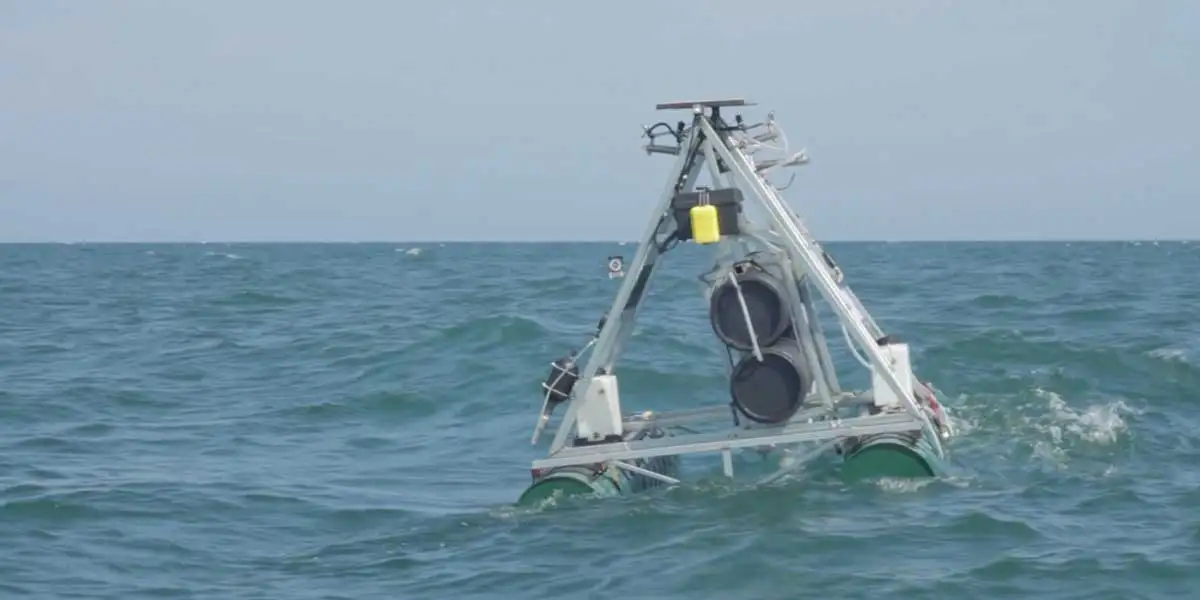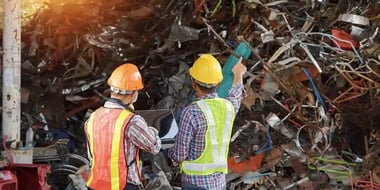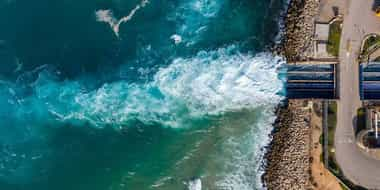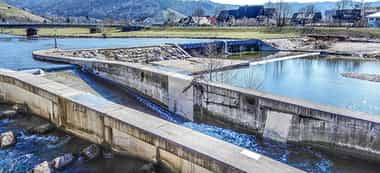A start-up company’s trio of founders is hoping its innovative desalination technology will help coastal communities around the world meet the dire need for drinking water, including in their home state of North Carolina.
In 2014, Chris Matthews, Justin Sonnett and Laura Smailes began testing their
SAROS (Swell Actuated Reverse Osmosis System) desalination device. The project is the inaugural venture of their company
EcoH20 Innovations, which aims to utilize renewable resources to provide inexpensive, clean water to developing coastal regions, areas looking for sustainable desalination solutions, and communities struck by natural disasters.
The company explains that SAROS is a “wave-driven, self-contained, seawater desalination system with minimal operational carbon footprint powered solely by ocean waves.” In other words, it uses wave energy to power reverse osmosis to turn ocean water into fresh drinking water. SAROS targets areas like coastal communities where typical solutions are unfeasible or undesirable and a small scale, efficient technology is needed.
RISING GLOBAL POPULATION SQUEEZING WATER RESOURCES DRY
The need for new sources of water and the roles played by seawater and brackish water in meeting that demand remains high. According to
The Organization for Economic Co-operation and Development (OECD), global water consumption has doubled every 20 years, which is twice the rate of population growth. The organization estimates that water demand in 2050 will increase by 70% over today’s demand.
A key part of that global demand is the percentage of populations living in coastal regions,
reports Gerry Runte, a BCC Research analyst. He estimates 25% of people live within 16 miles of a coastline, but many rely on water transported from the interior or from groundwater.
“These coastal communities are increasingly looking to the sea for drinking water, as well as for water needed for industrial development. Currently, about 1% of the world’s water supply is produced through desalination.”
More than 700 million people in 43 countries are experiencing water scarcity, Runte
notes. By 2025, 1.8 billion people will be living in places with severe water scarcity and two-thirds of the global population will encounter some degree of water stress. If warming continues at the current pace, by 2030 half of the world’s population will experience severe water stress.
MEMBRANE TECHNOLOGIES
Membranes are thin sheets or surface films, natural or manmade, with apertures through which small molecules or ions may pass while larger ones are retained. At its most basic level, a membrane serves as a sieve, separating solids from liquids forced through it, explains Runte.
“Semipermeable membranes are so named because some substances will pass through them whereas others will not. Usually, small ions, water, solvents, gases, and other very small molecules can easily pass through a membrane, whereas other ions and macromolecules such as colloids and proteins are retained,” he says.
SAROS CAPTURES THE TECHNOLOGY WAVE
SAROS uses pressurized water to perform Reverse Osmosis (RO) using only wave energy, thus overcoming the high energy demand the desalination process requires.
Last May, the team deployed their first oceanic test in waters off Nags Head, a popular destination in North Carolina’s Outer Banks. Sonnett said the results were promising.
"I don’t think either of us really understood kind of the impact of this thing until we actually got what we built on the water and actually made drinking water with it and realized that this could be something that could improve the world," Mathews
told Susannah Roberson
. “I think that as we see more people starting to care about sustainability and using green energy, we’ll see more facilities that would be a perfect fit for one of our devices.
More testing lies ahead this summer. The team hope to launch a pilot study later this year in Puerto Rico.




